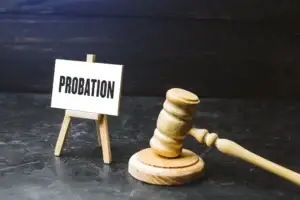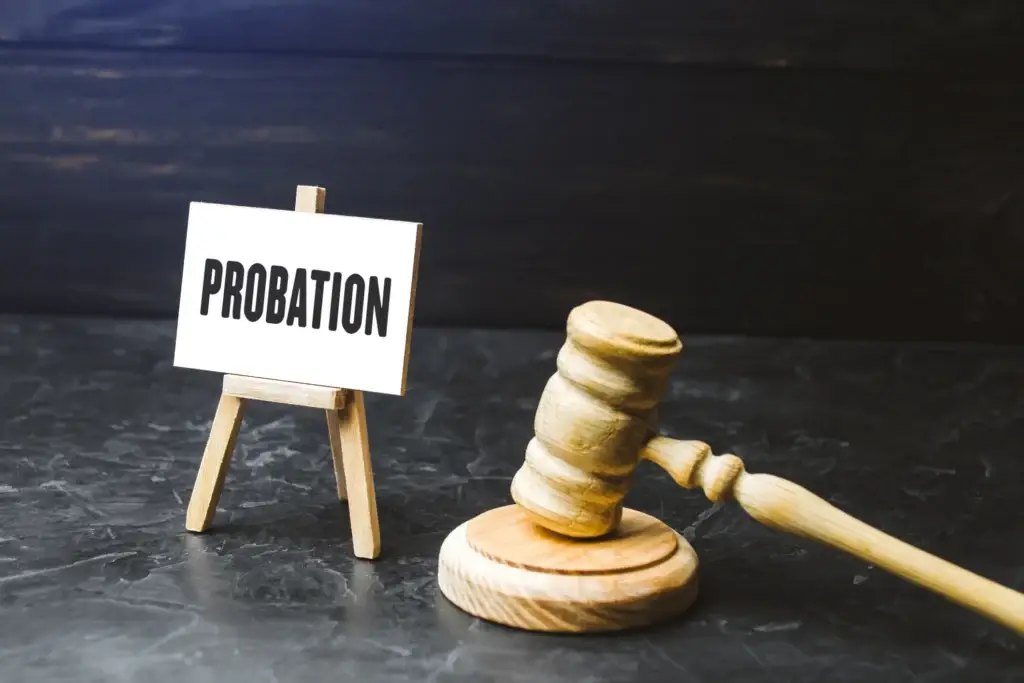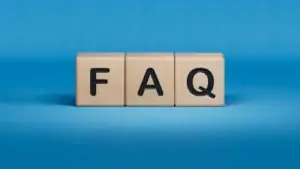April 21, 2025
Understanding Your Mandate: Reasons Courts Order Alcohol Awareness Classes

Receiving a court order requiring you to attend an alcohol awareness class might feel like an inconvenient penalty, another step in a challenging legal process. It’s natural to have questions about why these classes are mandated, what exactly the courts hope to achieve by requiring your participation, and how these educational programs are intended to positively affect your situation. Understanding the rationale and intent behind court-ordered alcohol education is crucial not only for clarifying your current legal obligations but also for recognizing how engaging with these classes can genuinely benefit you in both your personal life and your future decisions, ultimately helping you avoid further contact with the legal system.
In this comprehensive guide, specifically focused on the topic of “court ordered alcohol awareness class,” we will delve deeply into the common reasons why courts mandate alcohol awareness classes. We’ll explore the types of offenses that typically result in these orders, explain precisely how these classes fit into the broader court processes, detail the specific benefits courts expect to see from participants, describe how the curriculum is designed to achieve these goals, provide practical advice for successfully completing your class, and answer frequently asked questions about court-mandated alcohol education.
Why Do Courts Order Alcohol Awareness Classes? The Core Objectives
Courts and state authorities do not mandate alcohol awareness classes arbitrarily. These requirements are based on established principles of public safety, behavioral psychology, and crime prevention. The primary goals behind a court order for alcohol awareness education are multifaceted and centered on addressing the behavior that led to the offense and preventing future incidents:
- Reducing Recidivism: One of the foremost objectives is to significantly reduce the likelihood of individuals repeating the same alcohol-related offense. Recidivism (relapsing into criminal behavior) is a major concern for the justice system. By educating offenders about the risks, consequences, and alternatives to alcohol misuse, courts aim to break the cycle of repeated arrests and convictions. This is a proven strategy supported by research, as detailed in our post: How Alcohol Awareness Classes Can Reduce Recidivism
- Enhancing Public Safety: Reducing recidivism directly contributes to increased public safety. Fewer instances of impaired driving, public intoxication, or alcohol-fueled incidents mean safer roads and communities for everyone. Courts mandate these classes as a proactive measure to protect the broader community from the potential harms associated with alcohol-related behaviors.
- Promoting Personal Responsibility and Accountability: Courts utilize mandatory education to encourage offenders to take responsibility for their actions and understand the impact their choices have had on themselves and others. The classes provide a structured environment for individuals to confront the realities of their behavior and begin making more informed decisions regarding alcohol consumption and risk-taking. It’s a way for the court to ensure that the individual acknowledges the seriousness of the offense and takes steps to address the underlying issues.
- Providing Essential Education on Consequences: Many individuals involved in alcohol-related offenses lack a full understanding of the severe legal, health, social, and financial consequences associated with alcohol misuse and specific alcohol-related laws. Courts mandate these classes to fill this knowledge gap, ensuring offenders are fully aware of the potential negative outcomes of their behavior. The curriculum provides clear facts and data to combat denial or misinformation. The Science Behind Alcohol Awareness Courses highlights the scientific basis of this education.
- Serving as a Condition of Sentencing or Probation: For many offenses, the alcohol awareness class is a direct, non-negotiable order from the judge or a mandatory condition of probation or a plea agreement. Compliance with this specific requirement is monitored by the court or probation officer, and failure to complete the class within the specified timeframe can lead to serious legal consequences, including probation violations, additional fines, or even jail time. What Happens if You Fail an Alcohol Awareness Class? outlines the potential repercussions of non-completion.
- Part of a Broader Rehabilitation Strategy: In many cases, especially those involving more serious or repeat offenses, the alcohol awareness class is viewed as one component of a broader rehabilitation strategy. It provides foundational education that can work in conjunction with other requirements, such as counseling, treatment programs, or victim impact panels, to help the individual address the root causes of their alcohol-related behavior and make lasting positive changes.
In many cases, especially those involving more serious or repeat offenses, the alcohol awareness class is viewed as one component of a broader rehabilitation strategy.
Common Offenses Resulting in Court-Ordered Alcohol Awareness Classes
Courts typically mandate alcohol awareness classes following offenses where alcohol use was a contributing factor or a direct violation of alcohol laws. Understanding these common offenses clarifies why the court views alcohol education as a necessary response:
- DUI (Driving Under the Influence) or DWI (Driving While Intoxicated): These are the most frequent offenses leading to mandatory alcohol awareness or DUI school. Courts require education focused on the severe dangers and consequences of impaired driving to prevent repeat incidents on the road. Alcohol Awareness Classes for DUI/DWI Offenders provides a comprehensive guide for individuals facing these charges.
- Public Intoxication: Individuals arrested for being intoxicated in a public place often receive court orders for alcohol education. These classes help participants understand the effects of alcohol on judgment and behavior in public settings, the legal definition of public intoxication, and strategies to avoid such incidents in the future.
- Underage Drinking Offenses: Minors cited for offenses like minor in possession (MIP) of alcohol, underage consumption, or underage DUI are commonly mandated to complete alcohol awareness programs specifically tailored for young people. These courses focus on the unique risks of early alcohol use, the impact on the developing brain, specific minor laws, and strategies for resisting peer pressure. Alcohol Awareness Classes for Underage Drinking Offenses offers detailed information for underage offenders.
- Alcohol-Related Domestic Violence or Assault: When alcohol is a contributing factor in incidents of domestic violence or assault, courts may order offenders to complete alcohol education. These classes help individuals recognize how alcohol can escalate conflict, impair anger management, and contribute to aggressive behavior, offering strategies for healthier ways of managing emotions and interactions.
- Other Alcohol-Related Offenses: Depending on the jurisdiction, other offenses like open container violations, furnishing alcohol to minors, or certain instances of disorderly conduct linked to alcohol may also result in a court order for alcohol awareness education.
Detailed Explanation of How Alcohol Awareness Classes Fit into Court Processes
Understanding the legal timeline and how the alcohol awareness class fits into the broader court procedure can help manage expectations and ensure compliance.
- Initial Court Hearing or Arraignment: At your first court appearance, you are formally informed of the charges against you. The judge or attorneys may mention that alcohol awareness education is a potential requirement if there is a conviction or plea agreement.
- Sentencing and Receiving the Court Order: If you are convicted or reach a plea agreement, the court will issue a formal sentencing order. This document is critical – it officially mandates your participation in an alcohol awareness program. It will specify key details you must adhere to, such as the required duration of the class (e.g., 8 hours, 12 hours – 8 Hour vs 12 Hour Alcohol Awareness Classes), the deadline for completion, and often, that the course must be from a state-approved or court-accepted provider.
- Probation and Compliance Monitoring: If your sentence includes probation, your probation officer is responsible for monitoring your compliance with all court-ordered conditions, including completing the alcohol awareness class. You will typically need to provide proof of enrollment and/or completion (your certificate) to your probation officer by the deadline. Failure to do so will result in a probation violation, which can have serious consequences.
- Plea Agreements and Diversion Programs: In many DUI/DWI or other alcohol-related cases, completing an alcohol awareness class is a mandatory condition of entering into a plea agreement or being accepted into a diversion program. These programs allow you to potentially avoid a full conviction or receive reduced penalties if you successfully complete all requirements, including the class.
The Specific Benefits Courts Expect to See from Alcohol Awareness Classes
Courts mandate these classes because they expect tangible benefits that contribute to both the individual’s future conduct and the safety of the community:
- Decreased Likelihood of Future Offenses: This is the most direct expected outcome. By providing education on risks and strategies for prevention, courts anticipate a measurable reduction in recidivism rates among individuals who complete the program.
- Increased Personal Accountability and Informed Decision-Making: Courts want offenders to move beyond denial and take ownership of the choices that led to their offense. The classes are expected to foster this accountability and empower participants to make more informed, responsible decisions about alcohol use in the future.
- Improved Community Safety: By reducing the number of individuals who re-offend, particularly for impaired driving, courts expect to see a positive impact on overall public safety metrics, such as fewer alcohol-related accidents, injuries, and fatalities.
- Successful Rehabilitation: From the court’s perspective, successfully completing a mandated alcohol awareness class is a significant step in an individual’s journey towards addressing their alcohol-related behaviors and can be seen as a positive indicator of their commitment to rehabilitation.
- Compliance with State Mandates: In many cases, courts are legally required by state statutes to mandate these programs for specific offenses, fulfilling a state-level requirement aimed at public health and safety.
These expected outcomes highlight why courts view these classes not just as a punishment, but as an essential tool for positive change and community protection. The Science Behind Alcohol Awareness Courses provides the evidence base for these expected benefits.
How Alcohol Awareness Classes Achieve These Court Goals Through Curriculum
Alcohol awareness classes are structured with specific curriculum components designed to directly address the court’s objectives:
- Comprehensive Education on Alcohol’s Impact: Courses provide detailed, science-backed information covering the full spectrum of alcohol’s effects – physical (how it impacts organs, the brain), psychological (how it affects mood, judgment, behavior), social (how it impacts relationships), and legal (specific laws, penalties, consequences of violations). Understanding these consequences is foundational for making informed choices.
- Skill-Building for Better Decision-Making: Beyond just providing information, effective classes teach practical skills. This includes strategies for identifying personal triggers for problematic alcohol use, developing effective refusal skills to navigate peer pressure, learning anger management techniques (especially in the context of alcohol-fueled incidents), and practicing communication skills.
- Strategies for Responsible Alcohol Use and Risk Reduction: Courses provide concrete tools for reducing risk. This includes education on standard drink sizes, how to calculate or estimate BAC and understand its implications, planning for sober transportation options before drinking, setting personal limits, and recognizing the signs of problematic alcohol use in oneself and others.
- Assessment and Verification: Inclusion of quizzes and a final exam (Do Online Alcohol Awareness Classes Include Tests?) is crucial. These assessments ensure that participants have paid attention to and understood the core concepts, providing verifiable proof of learning to the court.
- Certificate of Completion: The issuance of an official certificate upon successful completion (Alcohol Awareness Class Certification: How Long Is It Valid?) is the formal documentation required by the court as proof that the mandate has been fulfilled.
Real-Life Scenarios: How Court-Mandated Alcohol Education Helps Achieve Court Goals in Practice
Considering realistic examples demonstrates how the education translates into behaviors that meet the court’s goal of preventing future offenses:
- Scenario 1: The DUI Offender: A person convicted of a DUI attends a mandated class. They learn that even the “couple of drinks” they thought were harmless significantly impaired their driving ability based on their BAC. The class provides them with the “Plan B” strategy – pre-arranging a sober ride before they go out. In a future social situation where they’ve had a drink, they recall the lesson on impaired judgment and their commitment to avoid another DUI. Instead of driving, they use a ride-sharing app, directly preventing a potential second offense and fulfilling the court’s public safety objective. Alcohol Awareness Classes for DUI/DWI Offenders elaborates on this.
- Scenario 2: The Underage Drinking Incident: A minor receives a court order after being cited for possessing alcohol at a party. The mandated class teaches them about the specific legal penalties for minors and how alcohol affects the still-developing teenage brain. They learn techniques for navigating peer pressure at parties and develop a plan for saying no respectfully. The next time they are in a social situation where alcohol is present, they utilize the refusal skills learned in class, avoid underage consumption, and prevent a repeat offense, aligning with the court’s goal for underage offenders. Alcohol Awareness Classes for Underage Drinking Offenses discusses this further.
- Scenario 3: The Public Intoxication Charge: An individual cited for public intoxication attends a mandated class. They learn to recognize the signs of intoxication in themselves and how alcohol impacts their behavior and decision-making in public settings. The class helps them identify personal triggers that lead to drinking in risky situations. In the future, they use coping strategies learned in class to manage stress instead of drinking excessively and make a plan to leave social events before becoming overly intoxicated, thereby preventing another public intoxication arrest.
In each scenario, the mandated education provides the specific knowledge and tools needed to break the pattern of behavior that led to the initial offense, directly contributing to the court’s goal of reducing recidivism and enhancing public safety.
Beyond just providing information, effective classes teach practical skills.
Successfully Completing Your Court-Ordered Alcohol Awareness Class
Successfully completing your court-ordered alcohol awareness class is crucial for fulfilling your legal obligations and leveraging the potential benefits.
- Understand All Requirements: Carefully review your court order for the required course length, deadline, and submission instructions.
- Choose a State-Approved Provider: Ensure the online or in-person provider is officially approved by the court or relevant state authority for your specific case. Use resources like Finding a State-Approved Alcohol Awareness Course Online and How to Verify if an Online Alcohol Awareness Class is Legitimate to verify legitimacy. Choosing an approved provider is essential for your certificate to be accepted.
- Enroll Promptly: Register for the class as soon as possible after receiving your court order to avoid last-minute stress and ensure ample time for completion and certificate processing.
- Engage Fully with the Material: Whether online or in-person (Online vs. In-Person Alcohol Awareness Classes), pay attention, take notes, and actively participate in quizzes and exercises.
- Submit Your Certificate Promptly: As soon as you complete the course, obtain your certificate and submit it to the court, probation officer, and/or DMV by the specified deadline. Confirm the required submission method.
For more detailed advice on successfully completing your alcohol awareness class, see: Tips for Successfully Completing Your Alcohol Awareness Class.
Frequently Asked Questions about Court-Mandated Alcohol Education
Yes, in most states and jurisdictions, courts accept online alcohol awareness classes, provided they are from an accredited and state-approved provider. You must verify that the specific online course provider is approved by the relevant authority (court, probation, DMV) for your case and jurisdiction before enrolling. Finding a State-Approved Alcohol Awareness Course Online and How to Verify if an Online Alcohol Awareness Class is Legitimate are essential resources for this verification.
Failing to complete a court-ordered class by the specified deadline is a serious matter and is typically considered a violation of your sentencing terms or probation. Consequences can be severe and may include a probation violation hearing, additional fines, extension of your probation period, a warrant issued for your arrest, or even jail time, depending on the nature of the original offense and the terms of your sentence. What Happens if You Fail an Alcohol Awareness Class? discusses consequences related to failing tests, but failure to complete the entire class by the court deadline is a compliance issue with direct legal repercussions.
Even if your court order doesn’t explicitly name a provider or use the term “state-approved,” the court almost certainly expects you to complete a program that is officially recognized and accepted in that jurisdiction. The responsibility falls on you to find an approved provider. Contact the court clerk or your probation officer to clarify the requirements and ask for a list of approved providers.
Typically, no. For most standard court orders, the court only requires proof that you have completed the approved alcohol awareness class by the deadline. They verify completion by receiving your official certificate from a state-approved provider. They do not usually monitor your progress module by module while you are taking the course online.
While most courts now accept online classes, your court order might specifically require an in-person class or list only local, in-person providers as approved options. Always read your court order carefully. If it requires in-person, you must comply. If it doesn’t specify, online from a state-approved provider is likely acceptable, but confirm directly. Online vs. In-Person Alcohol Awareness Classes compares the two formats.
Generally, the court only requires proof that you have successfully passed the alcohol awareness course to obtain the completion certificate. They do not typically require access to your individual test scores. The tests Do Online Alcohol Awareness Classes Include Tests? are a method for the course provider to verify your understanding and issue a valid certificate, which is what the court requires.
This is at the discretion of the judge or probation officer. If the voluntary class was from a state-approved provider, completed recently, and meets the required duration for your offense, the court may accept it. However, they are not obligated to. It’s best to consult with your attorney or ask the court/probation officer directly. Even if not accepted for compliance, demonstrating prior proactive education can be viewed favorably.
Read our The Ultimate Guide to Online Alcohol Awareness Classes.
Our Frequently Asked Questions about Alcohol Awareness Classes provides answers to many other common inquiries, including costs, certificate validity, and more.
Alcohol Awareness Class Certification: How Long Is It Valid?, Alcohol Awareness Courses and Your Driving Record: What You Should Know, and Can Alcohol Awareness Classes Help Restore Your Driver’s License? address other relevant topics.
Disclaimer: Always Consult with Legal and State Authorities
This article provides general information and guidance regarding the reasons courts order alcohol awareness classes. It is intended for educational purposes only and does not constitute legal advice, medical advice, or professional counseling. Specific requirements regarding mandatory classes, acceptable providers, deadlines, consequences of non-compliance, and the types of offenses leading to these orders vary significantly by state, county, and individual case circumstances and are subject to change. You must always consult directly with your attorney, probation officer, the specific court involved in your case, or the relevant state DMV or licensing authority to confirm the exact requirements applicable to your specific situation and to get personalized advice. Ensure you choose an accredited provider whose certificate will be accepted by the mandating authority.
Final Thoughts: Court-Ordered Alcohol Education as an Opportunity for Positive Change
Receiving a court order to attend an alcohol awareness class is a direct consequence of an alcohol-related offense, but it’s also an opportunity intended to foster positive change. Courts mandate these classes for clear, evidence-based reasons centered on education, accountability, public safety, and preventing future incidents. By understanding these objectives and engaging meaningfully with the class curriculum, you not only fulfill your legal obligations but gain valuable knowledge and skills to make safer choices in the future.
Courseable offers convenient, state-approved online alcohol awareness classes designed to meet the requirements set by courts across the country. We provide accessible, affordable education that supports you in fulfilling your mandate smoothly and effectively, empowering you to move forward responsibly.
Take control of your court requirements and move positively forward today – enroll confidently in Courseable’s Online Alcohol Awareness Classes and fulfill your court-ordered alcohol education requirement with a trusted and accepted provider.

Alcohol Awareness Classes and Probation: Understanding Your Requirements and Ensuring Compliance
Read More »Related Posts

Alcohol Awareness Classes and Probation: Understanding Your Requirements and Ensuring Compliance

How to Confidently Talk to Your Employer About a Court-Ordered Alcohol Awareness Class
Start Your Court Ordered Alcohol Class


